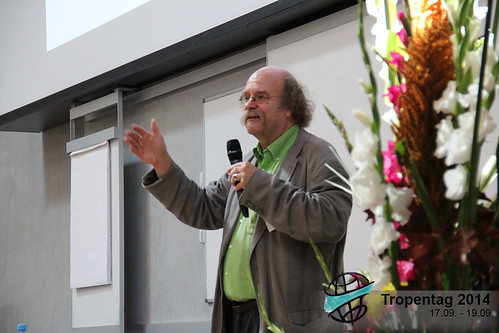Reply to comment
Patrick van Damme's guest speech and interview: The multiple faces of agroecology
Thu, 09/18/2014 - 19:48 — Juan José Egas
Development work and research still leave us with mind-blowing numbers: 12 million children worldwide are starved to death every year and 800 million people are in situation of hunger. Patrick van Damme stressed his attention of increasing population and energy consumption, and on lagging increase of grain production behind the demand trends.
In order to address a solution to such problems, equalising income and educating both men and women are a “must”, according to van Damme’s presentation. However, these alternatives are difficult to achieve and might take time to yield results, therefore, it is necessary to additionally improve agricultural production, especially for the ones that, contradictorily, produce food.
Out of all kind of help, Prof. van Damme underlined the importance of promoting local food production as one of the focal points to make food available and cheap, under the guidelines of agroecology philosophy. According to him, in agroecology “you take into account environmental parameters and conditions, you don’t try to bend them (in opposition to what he calls “modern” agriculture), you try to see how plots and crops can fit into those systems and you try to make the best of it and optimize production”.






